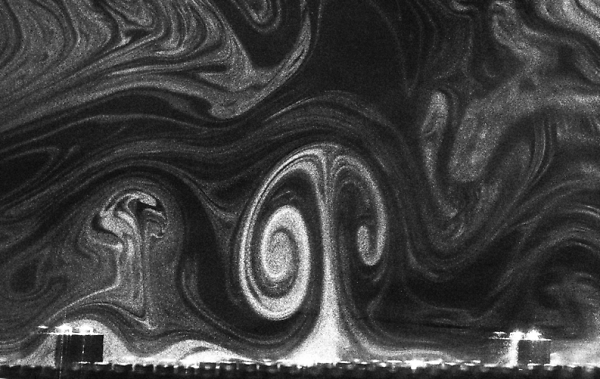"Quantifying Roughness Effects on Frictional Drag" Prof. Michael Schultz

Date
Location
Description
Dear all
This is an announcement of a seminar hosted by Continuum Physics Unit.
Date : March 17th , 2016 (Thu)
Time: 2:00pm – 3:00pm
Venue: C209 Seminar room
Speaker: Professor Michael Schultz,
Director of Hydrodynamics Laboratory,
Department of Naval Architecture and Ocean Engineering,
United States Naval Academy
Title: Quantifying Roughness Effects on Frictional Drag
Abstract:
This talk reviews our experimental research in rough-wall-bounded turbulent flows that has spanned the past 15 years. The results show that, in general, roughness effects are confined to the inner layer. In accordance with Townsend’s Reynolds number similarity hypothesis, the outer layer is insensitive to surface condition except in the role it plays in setting the length and velocity scales for the outer flow. The concept of similarity between smooth- and rough-wall flows is of great practical importance as most computational and analytical modeling tools rely on it either explicitly or implicitly in predicting flows over rough walls. Because of the observed similarity, the roughness function (DU+), or shift in the log layer, is a useful way of characterizing the roughness effect on the mean flow and the frictional drag. In the fully rough regime, it is shown that the hydraulic roughness length scale is related to the root-mean-square height (krms) and skewness (sk) of the surface elevation probability density function. Roughness function behavior in the transitionally rough regime varies significantly between roughness types. Since no “universal” roughness function exists, no single roughness length scale can characterize all roughness types in all the flow regimes. Despite this, research using roughness with a systematic variation in texture is ongoing in an effort to uncover surface parameters that lead to the variation in the frictional drag behavior witnessed in the transitionally rough regime. Recent results for ship hull roughness and marine fouling will also be discussed in this regard.
Attachments
Subscribe to the OIST Calendar: Right-click to download, then open in your calendar application.



